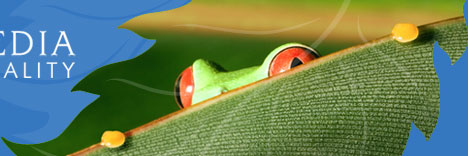Archive
VACANCIES: MARION ISLAND (DEPT OF ENVIRONMENTAL AFFAIRS)
3 October 2016
Vacancy: Workshop Manager - Two Oceans Aquarium
29 September 2016
VACANCY: CHIEF SCIENTIST (OCEANOGRAPHY)
27 September 2016
MSc OPPORTUNITY: African Coelacanth Ecosystem Programme (ACEP) UKZN
27 September 2016
MSC OPPORTUNITY: Creating a mean state of the physical oceanography of the KwaZulu-Natal Bight to contribute to Marine Protected Areas analysis.
27 September 2016
Vacancies
Cape reserves help schools’ Geo project - 22 February 2008
Cape Town – The City of Cape Town’s nature reserves are assisting schools with Geographic Information System (GIS), a new section in the geography curriculum of South African schools.
The nature reserves are providing school children with an opportunity to use hand-held Global Positioning Satellite (GPS) devices in a practical and beneficial way.
At a function in the city’s Tygerberg Nature Reserve on Wednesday, learners will find out about careers in nature conservation and GIS.
Everyone will have some healthy exercise in the fresh air participating in a treasure hunt on Tygerberg Hill using their GPS units.
The schools participated in 2007 in the first year of the high schools Youth, GIS and Urban Nature project funded by the Table Mountain Fund, World Wildlife Fund -South Africa and the city.
As part of this project, which forms part of the city’s Youth Environmental School (YES) Programme, Grade 11s from seven local schools took part in geography field trips to Rondevlei and Tygerberg Nature Reserves.
They used the GPS units to find their way to sites where they could observe and record plants, animals and the physical surroundings.
They took digital photographs, monitored the weather and recorded their findings on a computer database.
They then linked all their information to an electronic map of the nature reserve, using the GIS.
Schools will help the reserve to record the plants and animals found in an area that will be burned next summer as part of the reserve’s veld management programme.
After the fire, they will keep regular records of what plants and animals return, providing very useful ecological information for the nature reserve.
This project proves that playing with technology does not have to turn you into a couch potato.
In 2007, according to the Healthy Active Kids report card, South African children scored a dismal C-minus for overall health.
Researchers found that 64 percent of girls and 45 percent of boys in South Africa get little or no moderate to vigorous exercise in a week and that 30 percent of teenage girls are overweight or obese.
It's not surprising that the problem is worst in urban areas. In many suburbs it is not safe to play outdoors any more.
The lure of computers, television and other electronic gadgets is keeping kids on the couch, where their cellphones and game-boys ensure that they exercise little more than their thumbs.
Senior Geography teachers from schools close to the three nature reserves involved in this project are welcome to contact education officers to enquire about booking a GIS field trip.
Source: Buanews













